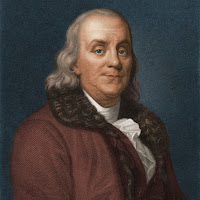The portions of the essay that invoke history are more alarmist and equally slipshod. England writes:
…history shows that city dwellers have a nasty habit of taking advantage of their country cousins. Greeks enslaved whole masses of rural people, known as helots. Medieval Europe had feudalism. The Russians had their serfs.That’s laughable, and not just because this conception of world history appears to be confined to the western half of Eurasia.
Before the Industrial Revolution, the overwhelming proportion of people in all large societies worked in agriculture. Cities were relatively small. Urban elites didn’t just head out to the countryside and enslave the people they found there. Rather, local strongmen forced the bulk of their neighbors to work the fields for them in exchange for protection. Only over time did elite families take urban dwellings as well, and only later did urban traders turn themselves into country aristocrats.
Notably, England doesn’t discuss the U.S. of A.’s own history of enslaving and oppressing people to make them work on agricultural production. In the ante-bellum period and then in the Jim Crow era, the Electoral College preserved the power of the local elites who maintained and benefited from that exploitation. Nobody looking at U.S. history should think that the Electoral College system has protected the rural Americans who actually did the work.
“The idea that every vote should count equally is attractive,” England writes. Yes, that’s why his state of Oklahoma and every other counts votes equally for local elections. I have yet to see proponents of the national Electoral College demand a similar system for their own states. The U.S. Supreme Court has even ruled that state and local elections must be based on the principle of “one person, one vote.”
England goes on:
But a quote often attributed to Benjamin Franklin famously reminds us that democracy can be “two wolves and a lamb voting on what’s for lunch.” (City dwellers who think that meat comes from the grocery store might not understand why this is such a big problem for the lamb.)England snidely suggests that “city dwellers” don’t know where meat comes from, but really he destroys his claim to speak for rural America by treating “two wolves and a lamb” as the norm.
There are more than 5,000,000 sheep in America and fewer than 25,000 wolves. Lambs would be well off in a “one animal, one vote” democracy where sheep could easily outvote wolves. The only time wolves outnumber sheep is when they maneuver to create that situation for their own advantage. Likewise, politicians worried about losing fair votes manipulate electoral districts (gerrymandering) or cling to an old imbalanced system (the Electoral College).
Franklin never made that mistake about wolves and sheep because Franklin never said what England quotes him as saying. The line appears nowhere in the Franklin Papers at Founders Online. Wikiquote not only notes that lack of a credible source but also how the word “lunch” appeared well after Franklin’s lifetime. England’s phrase “a quote often attributed to” hints that he recognized how unreliable this attribution was but decided to use it anyway because it served his purposes.
Likewise, the present Electoral College system continues to serve the purposes of some Americans, so they’ll use any argument to make it appear to be fair, logical, or beneficial. But those arguments melt on scrutiny.

Half of the American people live in 146 of 3000 plus Counties in America. That is why we have an electoral college. Republics are designed to protect the rights of the minority, not do the will of the majority.
ReplyDeleteThe U.S. Constitution bases political legitimacy on the choice of us the people, not on counties. “We the People” are the first words of the document, and it doesn’t even mention counties. For over a century most Americans have exercised our choice to live in metropolitan areas. As a result, the U.S. Senate and the Electoral allotment can distort the choice of the people and produce government that lacks the consent of the governed.
ReplyDeleteThe U.S. Constitution protects electoral minorities through guaranteed rights, court oversight, and regular elections.
That definition of a republic is ridiculous. The whole point of a democracy or republic (they’re synonyms) is that the people decide through their votes or representatives how their government works. Granting that power to a minority instead isn’t a republic; at best, it’s an oligarchy.